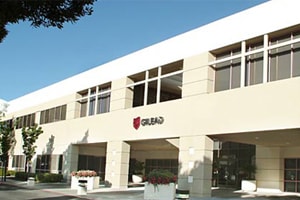 Just a few months after shelling out $12bn to buy CAR-T specialist Kite Pharma, Gilead Sciences is boosting its position in the category with a $567m swoop on Cell Design Labs (CDL).
Just a few months after shelling out $12bn to buy CAR-T specialist Kite Pharma, Gilead Sciences is boosting its position in the category with a $567m swoop on Cell Design Labs (CDL).
The new deal adds new technologies that could form the basis of a new generation of CAR-T therapies, according to Gilead. The tech was developed in the labs of Wendell Lim – a CAR-T expert based at the University of California, San Francisco – who is the scientific founder of CDL.
Kite, which operates as a wholly-owned subsidiary of Gilead, already owned around 12% of CDL before it was taken over, and to gain complete control of the company Gilead is paying $175m upfront plus another $322m in potential milestones that will be paid to CDL shareholders if its projects meet certain objectives.
CAR-T is a new approach to immuno-oncology that uses modified versions of a patient’s own white blood cells to attack cancer, homing in one tumour-associated antigens. Lim’s team has been working on ways to introduce some degree of control over CAR-T therapies, which while showing spectacular results in some clinical trials have also been associated with significant toxicity.
One CDL approach – called synNotch – is designed to require two antigens rather than one to active the CAR-T cell, potentially making the therapy more tumour-specific. Another platform called Throttle is designed to serve as an off switch to disable CAR-T cells using a small-molecule drug if the recipient starts to suffer side effects.
The company’s programmes are still in preclinical development and include projects in prostate cancer, liver cancer and multiple myeloma.
“Our growing understanding of molecular networks now allows us to engineer cells with novel behaviours, including therapeutic immune cells programmed to precisely recognise and treat cancer,” said Lim.
“This transaction has the potential to significantly advance the field, ultimately leading to the development of transformative treatments for cancer and other complex diseases.”
In a research note, analysts at Jefferies said the deal shows that Gilead intends to build a long-term presence in CAR-T by investing in acquisitions that will deliver new-generation therapies, adding that they expect the company to add to its presence in the category – possibly by bolting-on a gene-editing company.
CAR-T is still considered to be in its infancy with Kite bringing the second therapy to market – Yescarta (axicabtagene ciloleucel) for relapsed or refractory B-cell lymphoma – shortly after Novartis’ for a green light from the FDA for Kymriah (tisagenlecleucel) as a treatment for B-cell precursor acute lymphoblastic leukaemia (ALL).
The acquisition was announced just before the American Society of Haematology (ASH) conference in Atlanta, where studies on both Kymriah and Yescarta as well as a BCMA-targeting CAR-T therapy from Bluebird Bio were highlighted.
“It’s an exciting time,” said Renier Brentjens, medical oncologist and director of cellular therapeutics at Memorial Sloan Kettering Cancer Centre. “Based on these results and recent FDA approvals in this field, there is reason to be confident that cell therapies, such as CAR-T, may one day be the standard of care for haematologic malignancies as well as solid tumours.”




